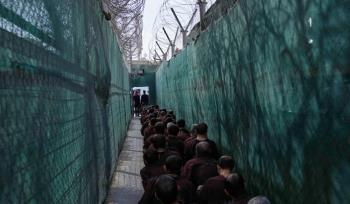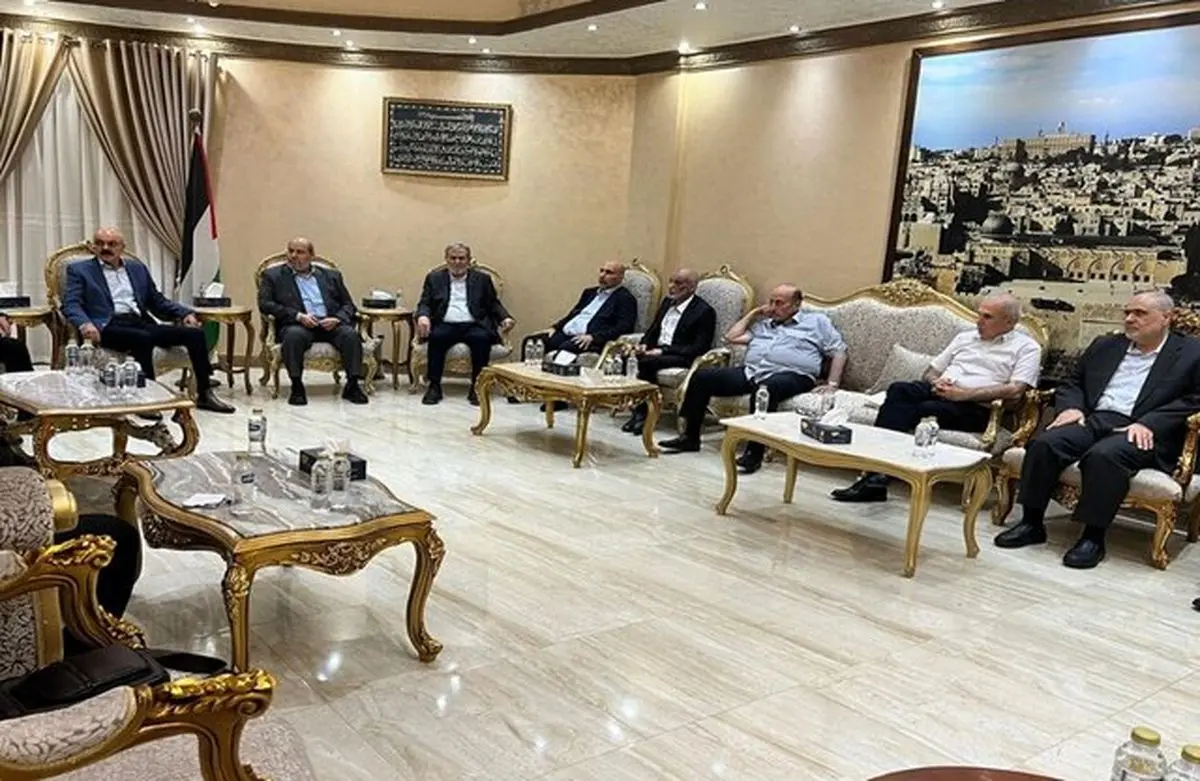Alwaght- Three weeks after ceasefire started in Gaza, the differences over the second stage of the deal remain unfolding.
One of the main sticking points between Hamas resistance movement and the Israeli occupation is about the political and security administration of the coastal enclave post-war, something the two sides remain divided over.
The political and administrative future of Gaza was first formally outlined in a 20-point plan by US President Donald Trump, which leaders from twenty countries endorsed last month at a summit in Egypt's Sharm El-Sheikh.
The committee is to be formed of eligible Palestinians under the auspices of the international experts and a new transitional institution dubbed "Peace Council", led by Trump.
The plan also stresses that such groups as Hamas should not be allowed, directly or indirectly, to engage in new Gaza administration, a term now causing the deepest gap between the warring sides.
Gaza Administration Committee is a temporary executive institution to be formed following the two-year war with its main job providing daily services, relief work, and reconstruction. Its main duty would be providing public services, coordinating with international organizations, and maintaining order during transition. The body will try to avoid political tensions and concentrate on meeting immediate needs of the Gazans.
However, the committee's survival hinges on sustained regional and international backing. Some observers see it as a step toward national unity, while others view it as a temporary experiment that may buckle under political and security pressures.
Furthermore, the starkly different views among Palestinian factions, American officials, and Israeli occupation signal that enormous obstacles lie ahead for the plan's implementation.
Stances of Palestinian groups
Hamas has agreed to the Trump administration's 20-point peace proposal to end the war, but has laid out specific demands regarding the formation of a technocratic committee.
Senior Hamas official Mohammad Nazzal announced that the movement would accept transferring Gaza's administration to a technocratic committee, provided guarantees are given regarding Palestinian rights and a clear five-year pathway toward Palestinian statehood.
On the issue of disarmament - a primary demand from Tel Aviv leaders for moving to the second phase of the ceasefire - Hamas leadership has attached several conditions. Nazzal told Reuters: "To be frank, this matter depends on the nature of the project. We first need to understand what the disarmament project precisely means and to whom weapons would be handed over. Issues related to the next phase of negotiations, including weapons discussion, do not concern Hamas alone but involve other armed Palestinian factions as well, so all Palestinians must reach a common position."
This development comes as Palestinian factions recently agreed during Cairo talks to transfer Gaza's administration to an independent technocratic committee under the Palestine Liberation Organization (PLO), tasked with managing daily life and basic services while coordinating with Arab countries and international institutions.
Since the US and the Israeli regime oppose any Hamas presence in this technocratic committee, the movement's leaders have confirmed they will play no role in the Gaza administration committee.
According to Israeli media reports, Hamas and the Palestinian Authority (PA) have reached an agreement through Egyptian mediation to appoint Amjad al-Shawa as head of the temporary Gaza administration committee, an appointment that ultimately requires Washington's final green light.
Al-Shawa, the head of the Network of Gaza Civil Society Organizations, is not a Hamas member despite close ties to the movement and has always displayed an independent figure. According to the mechanism, the temporary administration's composition is set in this way: 50 percent picked by Hamas and 50 percent by the PA.
Within this framework, Hamas announced on Friday that it had submitted a list of 45 independent public figures to Egyptian mediators. Tahir al-Nono, a media advisor for Hamas, explained: "These names were selected in agreement with other Palestinian factions. They are all independent figures and native sons of Gaza. None have political affiliations, and they are all committed to the interests of Gaza. Their shared goal is to protect the interests of the people and the future of the Strip."
This move is seen as an effort by Hamas to maintain indirect influence within the new administrative structure. Israel's Channel 11 reported on the development, saying that the mediators, particularly Egypt, have presented the complete proposed composition of the technocratic administration to Hamas to secure its approval. This is a dramatic step that will keep Hamas in the Gaza power structure through the 'back door,' even after the war ends."
Meanwhile, the Fatah movement, which was not present at the Cairo talks, also weighed in. Its spokesman, Abdelfattah Doleh, stated on Saturday that Fatah would not oppose any candidate proposed for the Gaza committee. However, he emphasized that the committee must be formed within the framework of the PA and chaired by one of its ministers to preserve institutional and political unity. He stressed that Fatah's primary concern is upholding the legal authority and unified political and administrative structure of Palestine.
Israeli and American hostile stance
Though Hamas and other factions agreed to many of the Israeli and American conditions, Washington and Tel Aviv officials demand a full surrender of the resistance factions, something aimed at paving the way for expansion of occupational plans.
Washington is adamant that, according to the Trump administration's 20-point plan, Hamas must be completely removed from Gaza's political and executive structures. Trump has even called on Arab allies to help ensure the proposed technocratic committee remains free of the movement's influence.
Some American analysts have emphasized that any role for Hamas in selecting the committee would violate the core principles of the Trump plan. Consequently, Washington is pushing for Gaza's administration to be without Hamas, with the process overseen by international bodies and US-backed security mechanisms.
Meanwhile, the Israeli regime, which seeks the destruction of Palestinian resistance and its military infrastructure, along with full security control over the enclave, strongly opposes any governing body that includes Hamas. For this reason, Netanyahu's far-right cabinet has refused to offer the movement any role in the proposed technocratic government.
Some media outlets have reported that Tel Aviv might accept a technocratic committee, but only if Hamas is entirely excluded from any direct role. Amid these discussions, an Israeli official told Saudi-funded Al Arabiya news network that Israel would not veto the nomination of al-Shawa to head the committee, provided its authority remains strictly confined to civilian affairs.
Nonetheless, viewing unity among Palestinian factions as a direct threat to their security, Israeli leaders are using every tool at their disposal to prevent any convergence between these groups from taking shape.
One of Fatah leaders told Arabi 21 that Tel Aviv with all of its capacities is pushing to prevent any official meeting between Hamas and Fatah and prevent any serious step for a national Palestinian reconciliation or comprehensive national agreement. It, he adds, works to keep Gaza and West Bank control and block any attempt to end the inter-Palestinian divisions and strengthen national Palestinian unity.
Prospects of fragile ceasefire shrouded in mystery
Having in mind that the committee is tasked with overseeing humanitarian activities and Gaza's reconstruction process, it will only succeed if its administration is purely Palestinian.
Hamas and other Palestinian factions argue the US and Israeli regime lack serious commitment for Gaza's full reconstruction, adding they are attempting to implement only limited projects in the southern part of the strip. They view this plan as aimed at permanently resettling Palestinians in the Rafah area while preventing their return to northern areas, where Trump and Netanyahu have envisioned new dreams of transforming into what they imagine as the "Riviera of the Middle East."
Permanent settlement of Palestinians in southern Gaza could serve as a prelude to their forced displacement from the strip and pave the way for occupation, enabling Israelis to easily advance their ambitious projects.
Palestinian groups maintain that due to the crimes committed over the past two years, Tel Aviv is not qualified to supervise the ceasefire. Consequently, they want an institution comprising all Palestinian factions with participation from Arab countries to assume responsibility for monitoring and implementing the truce.
Experience has shown that Tel Aviv leaders have not adhered to ceasefire commitments and have resumed attacks under false pretexts. Therefore, Hamas fears that in the second stage of the ceasefire, Tel Aviv will use the pretext of monitoring the ceasefire and reconstruction process to accuse Palestinians of violating the truce and justify its crimes. If the project to disarm the resistance is implemented simultaneously, this process will ultimately pave the way for continued occupation rather than guaranteeing peace.
Overall, no sustainable peace will emerge with Hamas's exclusion from Gaza's technocratic committee. Whether its opponents accept it or not, this movement is rooted in the heart of Palestinian society and enjoys significant popular legitimacy among Gaza's grassroots.
Experience of the past two decades has shown that the PA and other Palestinian groups have failed to provide an alternative to Hamas. So, any effort by the US and Israel to push Hamas to the sidelines or disarm it will actually function as a disregard of the true popular will and a reproduction of the old vicious circle of violence and instability.
If the technocratic committee's aim is to bring peace and humanitarian conditions improvement to Gaza, it is realizable only through true participation of all national actors, including Hamas. Otherwise, Trump's plan will suffer the same fate of other failed regional agreements.



























